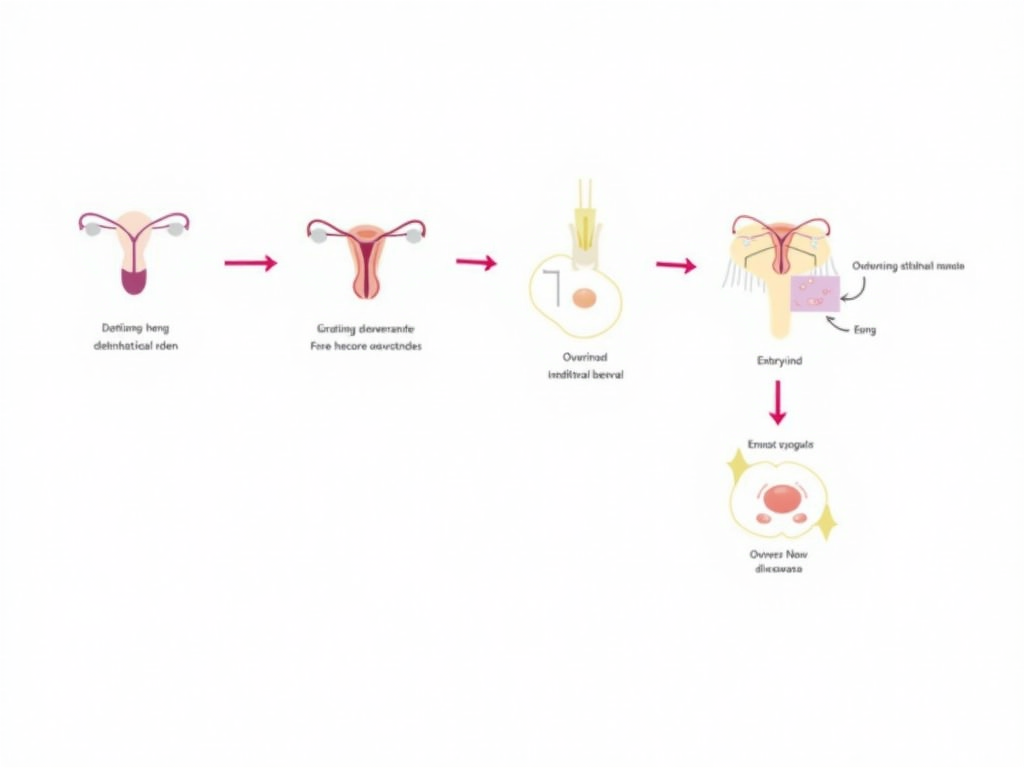The Future of Fertility: Personalized IVF Medication Plans
June 12, 2025, 5:21 p.m.
In the world of fertility treatments, one size does not fit all. Personalized IVF medication plans are changing the game, offering tailored solutions for couples struggling with infertility. These plans are designed to meet the unique needs of each patient, increasing the chances of a successful pregnancy. In this article, we'll explore the science behind personalized IVF medication plans, the process involved, and share real success stories. If you're considering IVF, this guide will provide you with valuable insights and hope.
Understanding Personalized IVF Medication Plans
Personalized IVF medication plans are customized treatment protocols that take into account a patient's age, medical history, hormone levels, and previous responses to fertility treatments. Unlike traditional IVF protocols, which follow a standard approach, personalized plans are tailored to optimize the chances of success for each individual.
Why Personalization Matters
Every person's body is different, and fertility issues can stem from a variety of causes. By personalizing the medication plan, doctors can address specific issues such as poor egg quality, hormonal imbalances, or male factor infertility. This targeted approach not only improves the chances of success but also minimizes the risk of side effects and complications.

The Science Behind Personalized IVF Medication Plans
The cornerstone of personalized IVF medication plans is the use of fertility drugs. These medications are designed to stimulate the ovaries to produce multiple eggs, which are then retrieved and fertilized in a laboratory. The type and dosage of these drugs are carefully selected based on the patient's individual needs.
Types of Fertility Drugs
- Gonadotropins: These are hormones that stimulate the ovaries to produce eggs. They are often used in combination with other medications to control the timing of ovulation.
- GnRH Agonists and Antagonists: These drugs help prevent premature ovulation, ensuring that the eggs are retrieved at the optimal time.
- Progesterone: This hormone is used to prepare the uterus for embryo implantation and to support early pregnancy.
Tailoring the Plan
Doctors use a variety of tests and assessments to tailor the medication plan. These may include:
- Blood Tests: To measure hormone levels and determine the best timing for medication administration.
- Ultrasound: To monitor the development of follicles and eggs in the ovaries.
- Genetic Testing: To identify any genetic factors that may affect fertility.

Real Success Stories
Personalized IVF medication plans have brought hope to many couples. Here are a few inspiring stories:
- Sarah and John: After years of trying to conceive, Sarah and John turned to IVF. With a personalized medication plan that addressed Sarah's low ovarian reserve, they welcomed their baby girl in 2023.
- Emily and Mark: Emily had a history of miscarriages. Her personalized plan included genetic testing and a tailored medication protocol, leading to the birth of their son in 2024.
- Lisa and David: Lisa's age was a concern, but with a customized plan that included higher doses of gonadotropins, they now have twins.
The Emotional Journey
The road to parenthood can be emotionally challenging. Many couples experience a rollercoaster of emotions, from hope to disappointment. Personalized IVF medication plans offer a glimmer of hope, providing a tailored approach that increases the chances of success.

The Process of Creating a Personalized IVF Medication Plan
Creating a personalized IVF medication plan involves several steps:
- Initial Consultation: The doctor reviews the patient's medical history and conducts a physical examination.
- Diagnostic Tests: Blood tests, ultrasounds, and genetic testing are performed to gather data.
- Plan Development: Based on the test results, the doctor designs a customized medication protocol.
- Monitoring: Throughout the treatment cycle, the patient is closely monitored to adjust the medication as needed.
- Egg Retrieval and Fertilization: Once the eggs are mature, they are retrieved and fertilized in the laboratory.
- Embryo Transfer: The best-quality embryos are selected and transferred to the uterus.
The Role of Technology
Advancements in technology have made personalized IVF medication plans more effective than ever. Tools like artificial intelligence and machine learning are being used to analyze data and predict the best treatment protocols.

Conclusion
Personalized IVF medication plans are a beacon of hope for couples struggling with infertility. By tailoring the treatment to each patient's unique needs, these plans offer a higher chance of success and a more positive experience. If you're considering IVF, talk to your doctor about the benefits of a personalized approach. With the right plan, your dream of parenthood could become a reality.
Recommended Readings
For more information on personalized IVF medication plans and fertility treatments, check out these resources:
- Understanding IVF: A Comprehensive Guide
- The Role of Genetics in Fertility
- Success Stories: Real Couples Share Their IVF Journeys
- Advancements in Fertility Technology
- Choosing the Right Fertility Clinic